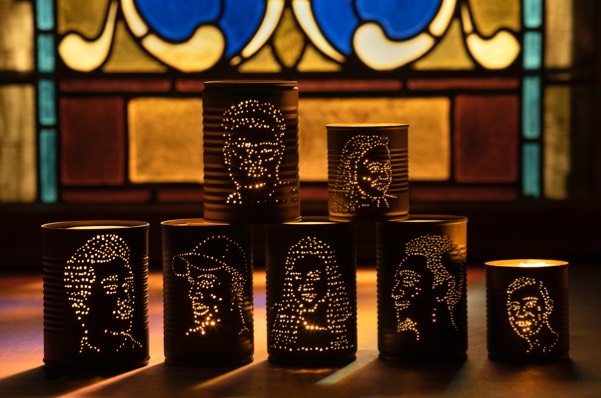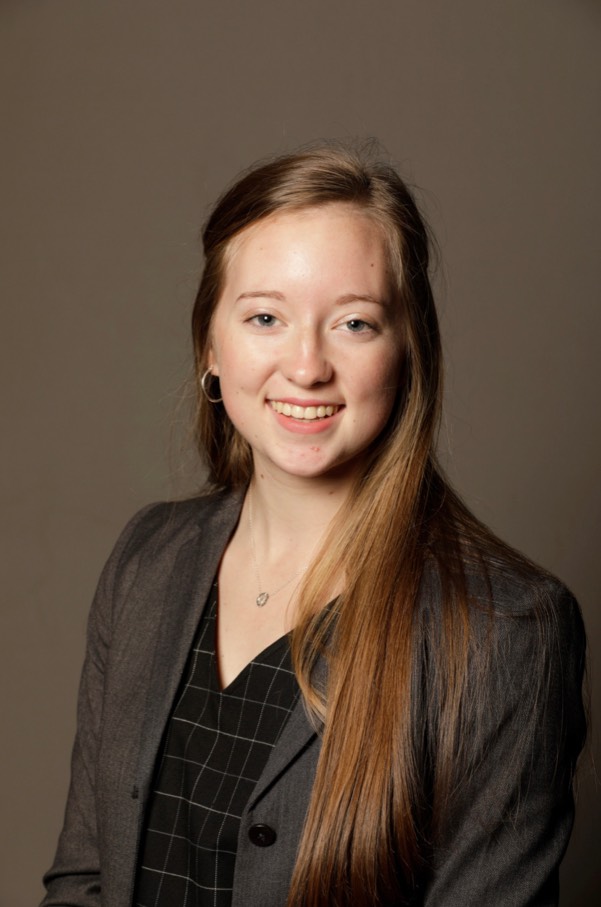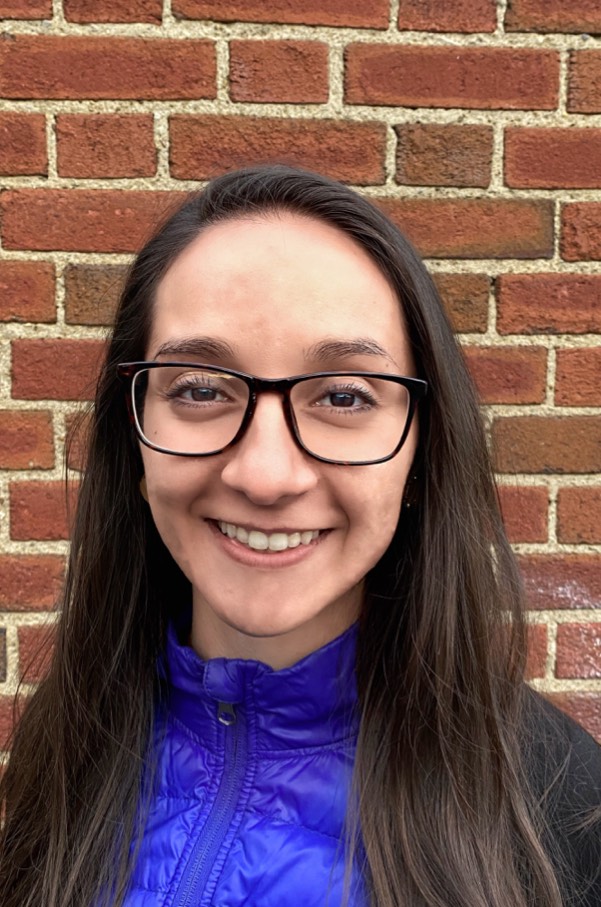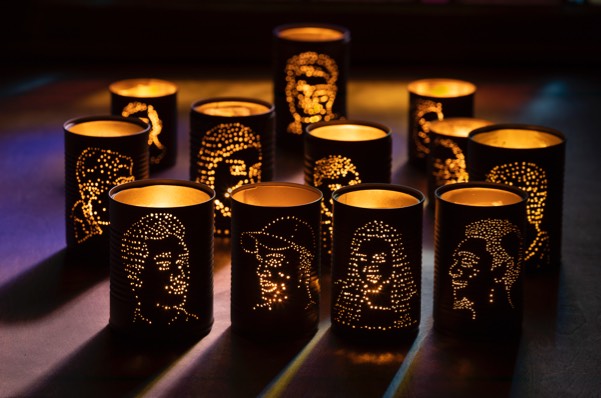Video
Driving Back the Brokenness
Surrounded by brokenness, teenager Wade never dreamed that he would one day become the kind of healthy father, husband, mentor and role model he’d always wanted.
January 2021
Through the Summer of Theology training course, God’s Word illuminated the hearts of college students nationwide, helping them shine their light before others.
“Why am I stuck here?”
Nearly 2,000 miles from family and friends in Los Angeles, California, Faith Hadley was spending the summer living with her grandparents in Lake Geneva, Wisconsin. Physical distance was familiar territory for Faith, who attends college in Ohio. But the summer of 2020 presented fresh, new challenges.
During her freshman year at Miami University, Faith quickly gravitated toward the Cru® ministry on her campus. When the COVID-19 pandemic cut the year short, she missed her Christian community.
Now feeling isolated and perplexed about God’s purpose for her summer, Faith questioned her decision to live so far from home and wondered why God would lead her into such an uncertain, lonely situation.
Scanning her email, a message caught Faith’s attention:
Have you ever wanted to know WHY you believe what you believe?
This summer, Cru is offering a free theological training course for you. Summer of Theology will give you a deeper understanding of God and his Word.
Faith clicked on the “Apply” button, and with that, God began unwrapping answers to her questions and many others that she had never thought to ask.
Mid-July’s first light sneaks through the window as Faith’s alarm beeps her awake. Though 6:45 a.m. feels early, she rallies, semi-dreaming about coffee and today’s topic: sanctification.
By 7 a.m., Faith is on a Zoom call with her Summer of Theology coaching group. They are unlike many of the other groups: all young women attending Ohio universities and ranging in age from 19 to 26. And their coach, Dean Bouzeos, isn’t your average campus minister. In fact, Dean normally spends his days far from the company of students in his role as the director of the Sports Complex and Retreat Center for Athletes in Action®, the sports ministry of Cru. When presented with the opportunity to coach students, Dean didn’t hesitate.
Faces begin to pop into view as stragglers join the call. Casual chatter eases into updates and prayer requests.
Luana is relieved to be done with her visa application that may allow her to continue living in the United States. “Please pray that it lands in the right hands,” she asks.
Faith shares that she likes her new church. “Thank you, Dean, for helping me make a good choice.”
Katie is packed up and ready to move back to Ball State University.
As the Zoom call continues, there’s a birthday to celebrate and more prayer requests. Love and intentional care unite this band of believers through time, space and technology.

After prayer, Dean frames today’s topic with Galatians 2:20: “I have been crucified with Christ and I no longer live, but Christ lives in me. The life I now live in the body, I live by faith in the Son of God, who loved me and gave himself for me” (NIV). He reminds the group that we cannot live the Christian life on our own. Luana smiles knowingly, and Dean asks for questions about today’s module.
Faith pipes up with a heart-haunting query. She speaks slowly, gathering words to convey a complex thought. “Does God ever keep us in sin in order to teach us more?”
The question engages multiple layers of scriptural truth that require clarification.
What are the implications of living in a fallen world? Why do Christians continue to struggle with sin and suffering? Is God responsible for our sin?
After some discussion, Dean guides the group to 2 Corinthians 12:7, where Paul mentions the “thorn in my flesh.” It doesn’t answer the “why?” questions per se, but it underlines the reality that all of creation groans deeply under the weight and consequences of sin — God’s redeemed people included — while we wait for Christ to return and make all things new.
Learn more about these theological concepts.
In justification, God renders a one-time legal verdict with respect to sinners who place their faith in Christ. God’s verdict is that they are righteous in his sight.
Romans 4:5 shares, “And to the one who does not work but trusts him who justifies the ungodly, his faith is counted as righteousness.”
Sanctification is an ongoing work of God in us through which we are increasingly freed from the power of sin and made to reflect and enjoy Christ by the power of the Holy Spirit.
For over an hour, six young women and one mentor dive into the deep waters of theology, through a conversation about Scripture. They discuss the differences between justification and sanctification and grapple with the cooperative nature of how Christians are transformed into the likeness of Christ.

Faith Hadley
1/2

Luana Dumitru
2/2
This early morning coaching session embodies many of the qualities that drew students from 207 universities to 2020’s Summer of Theology. Faith wanted to better express what she believes and why. Others hoped to know more about God and themselves, grow in Christ-like character and be equipped to make Christ known in the world around them.
By April 2020, Cru campus leaders discerned that the upcoming summer would be unlike any before. With general uncertainty surrounding COVID-19, leaders maneuvered to provide meaningful replacements for lost summer mission opportunities.
Cancellation emails pinged the inboxes of the nearly 3,000 students and hundreds of Cru missionaries who were preparing to lead these experiences.
In South Carolina, Upstate Cru Campus Team Leader Patrick Martin shifted from disappointment at losing key opportunities with students to waiting on the Lord for something different.
Scanning his email about newly forming summer options, something jumped out at Patrick: theology for students. Before he knew it, Patrick had agreed to facilitate a new summer option.
What comes to mind when you hear the word “theology”?
Most of us don’t think of theology as something for the everyday Christian. But at the heart of it, theology is all about knowing God. And knowing God is the gift and calling of every Christian.
As Michael Horton, Ph.D., says in his book Pilgrim Theology, we can only experience God if we know him first.
“Even our most basic Christian experiences and commitments are theological.”
Michael Horton, Pilgrim Theology
Our theology — what we believe about God — informs the asking and answering of questions that “haunt our hearts” from the cradle to old age.
Only when we know who we worship are we able to worship rightly. In the same way, only when we know the God we serve are we able to live rightly. As Beth Felker Jones explains in the introduction to her book Practicing Christian Doctrine: An Introduction to Thinking and Living Theologically, “Christian theology is a conversation about Scripture.”
This conversation extends beyond simply knowing things about God. Felker continues, “Our beliefs must be put into practice, and faithful practice matters for what we believe.”
The balance between what we know about God and how we practice that is what Carl Ellis, Jr., D. Phil, describes as a two-sided theology. Side A is what we think about God, while side B informs how we behave.
Dr. Carl Ellis, Jr., addresses the question “What is a big misconception of theology?”
Ellis also explains that the theology we use was developed because the church faced a historical challenge. Today, Christians still need to apply Scripture to current issues and concerns. “Appreciate the theology that we have today — provided it’s biblical,” says Ellis. “But let us also continue to do theology.”
Reflecting back on the summer of 2020, Patrick marvels at how God eclipsed his expectations for Summer of Theology.
In light of recent Barna Group research, revealing that only 4% of Gen Z (those born between 1999 and 2005) hold to a biblical worldview, Patrick became convinced that college students not only need but also crave robust theological training.
“We have an opportunity to give students a strong foundation,” he said in early June, as groups began gathering steam.
Given the limited time organizers had to coordinate and share the Summer of Theology opportunity with students, Patrick anticipated interest from no more than 50 students. By the time applications closed in mid-June, over 500 students had registered, and 50 more waited as Patrick gathered volunteers to facilitate 10 more groups.
In the end, God rallied 62 coaches for the summer from all corners of the country and from a wide variety of Cru ministries, as well as a few volunteers who are not employed by Cru.
By late May, coaches began facilitating Zoom meetings, interacting with students over a multi-media curriculum called CoreDoctrine. Originally designed to outfit short-term Cru interns with a theological foundation in a short amount of time, CoreDoctrine fit Summer of Theology perfectly. Where an unanticipated need arose, God already provided.
Even before summer’s end, coaches and students enjoyed the fruit of studying and practicing theology.

“I was so encouraged to see young adults hungry for the Word of God and seeking ways to incorporate … theology into their Cru campus ministries and their daily lives,” said Faith’s coach, Dean.
As Faith grew to better understand her own faith, God also responded to her early summer cries for help. “He has allowed me to share the gospel with my co-workers,” she said.
“Purpose has appeared from all corners. Summer of Theology met me at the crossroads of asking God, ‘What am I doing here?’”
Faith Hadley
Ashley Koch, a fourth-year nursing student at San Diego State University, shared that Summer of Theology “empowered me to share the gospel and inspired me to take new steps in growing my faith.”
For others, the experience translated directly to ministry opportunity. Sophomore Lexi Hicok, who attends Miramar Community College in San Diego, California, says, “After learning so much … I [took] the opportunity to serve middle school girls at my church.”
George Huang, a student from the University of Texas, Austin, expressed gratitude to his coaches, Eric and Lauren Ogle. “Thank you,” he said in a video, “for inspiring me to keep learning, to keep seeking after God, to keep asking the hard questions, to go and spread … the good news of Christ.”
Much of the fruit of the 2020 Summer of Theology will remain private, playing out in quiet acts of obedience, Spirit-led conversations about faith and an ongoing pursuit of Christ. But each of the 526 students who experienced more of God through the program will carry a deeper understanding of Scripture and theology back to campus and into their futures.
Explore Cru’s interactive tool CoreDoctrine on your own or in a small group. Register for free and sign up as a “coach” or a “student.”
GrowAre you a student looking for community and a way to connect with Cru on campus? Cru is here to journey with you.
Relate
Melissa Long serves as a writer for Cru®. As a native of Lookout Mountain, Georgia, Melissa appreciates the deep quiet of forested mountains. She currently resides on the edge of a wooded swamp in Florida with her husband, two kids and a devoted but somewhat deranged cat named Maple.
Contact Me
Guy isn’t much of a city person. Paddling down the Wda river in northern Poland with participants of a Cru® summer mission project describes a great place for him to photograph. He likes being outside, doing anything with water, and he enjoys making things with his hands. Guy serves as a photographer for Cru.
Contact Me